Film director Debra Granik was born in 1963 in Cambridge, Massachusetts. Her first film, Snake Feed, made while she was still a student at New York University, won the award for best short at Sundance in 1998. She has since made two feature films, including 2010’s Winter’s Bone, which launched lead actor Jennifer Lawrence’s career and earned her an Academy Award nomination. Her follow-up, Leave No Trace, is adapted from Peter Rock’s novel, My Abandonment, which tells the story of an army veteran father and his daughter and their survivalist existence in the rural outskirts of Portland, Oregon. It’s out now.
1. Comedy
Kate McKinnon’s impressions of Rudy Giuliani

Political comedians have been helping me crack a laugh recently when some events have been too hard to digest. They’ve been able to lay bare some of the bizarre and blatant ironies of rightwing thinking now, calling it out in an efficient and incisive way. It’s been a pleasure to see female comedians be prominent and flourish – like Kate McKinnon’s Rudy Giuliani impressions, which are uncanny in their precision. It makes us keener listeners on some level, isolating things that don’t hold up and making sure we don’t miss them.
2. Food
Bread from She Wolf Bakery, New York
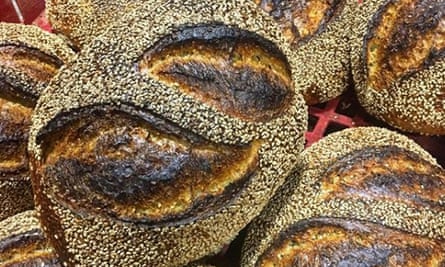
My colleagues just brought back some bread from a farmer’s market made by a local bakery, She Wolf, and it tasted so fundamentally different from what we’d eaten before. We ate this bread and we were very fired up to do some important work in the office that day. There’s been all this research done by food critics, journalists and historians to understand why it is that some things we were doing in food were amazing and why we shouldn’t lose them, like the traditional way of making bread using long fermentations in service to keeping humans both happy and healthy.
3. Art
Mierle Ukeles, Touch Sanitation

I’ve loved Mierle’s work for many years. In 2016 there was finally a beautiful exhibition of her work in the Queens Museum, New York. She made this piece in the late 1970s that really affected me, Touch Sanitation, where she shook the hands of over 8,000 New York sanitation workers to show how citizens relate to the infrastructure of the city. The work is photographic evidence of her meeting the workers, as well as chronicling what happened when they came to the first exhibition and how she then stayed in touch with some of them. It was a Herculean effort, honouring the hard work of everyday New Yorkers.
4. Venue
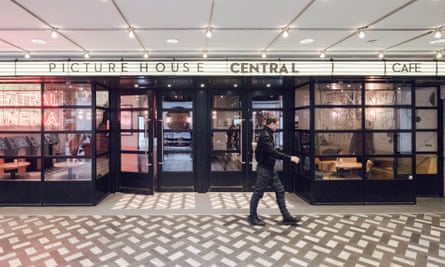
I was recently in London for the Sundance festival and I went to Picturehouse Central for the first time and spent the better part of a week with my jaw in my lap. I was amazed to see something that’s so robust and thriving and that also feels like a cultural space to gather in with pleasure. I was able to have interesting discussions after each screening, and I was on a high. It was a rare space to reflect on the films I’d just seen – a space for ingestion as well as digestion.
5. Book
We Are All Fast Food Workers Now by Annelise Orleck
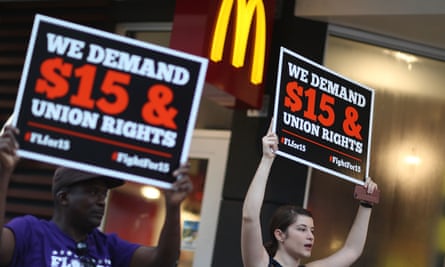
This book is a breakthrough study in the interrelatedness of what workers experience in different city-states and nation-states of our global economy. I really appreciated the field research and how I could read investigative first-person accounts of how things are run. One vivid scene featured 12 McDonald’s workers from different countries who all put out their forearms and had the same scars from where burning grease from the fryer had hit them. Their similar experiences build a foundation for a meaningful discussion and then hopefully spur change into action.
6. Film
RBG (Dir Betsy West, Julie Cohen, 2018)
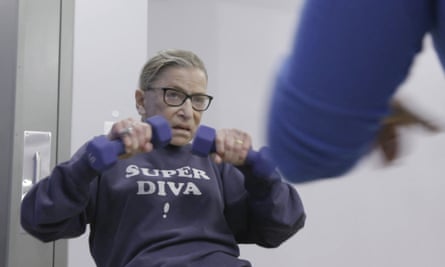
This documentary on the supreme court Justice Ruth Bader Ginsburg is doing really well at the moment, and it’s testament to her becoming an inspiration for a lot of women who have now entered the field of law. She’s someone who dedicated her life to public service and in these dark times we need people like her who stayed their course during the onset of extreme rightwing thinking, evangelical Christianity and the aggressive malpractices of big business. It’s amazing to see someone in our lifetime doing that – it’s like having a patron saint!
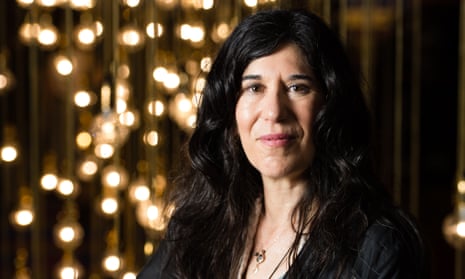
Comments (…)
Sign in or create your Guardian account to join the discussion